In present-day world, discussions of progress revolve mainly around economic growth and technological innovation. Nevertheless, the voices that call us back to compassion, service, and responsibility towards the less fortunate carry a timeless significance. One such important voice is that of Mr Abdul Rahim, the Founder Trustee of The Sirri Saqti Foundation (TSSF), a Kolkata-based NGO that has steadily built its identity as a catalyst for social development over the past decade and a half.
What started as a simple breakfast initiative in 2009 has since blossomed into a comprehensive movement. Today, TSSF addresses a spectrum of pressing human needs—including hunger, healthcare, education, and livelihood—while also tending to spiritual development. The distinction of TSSF lies not only in the diversity of its programs but also in the philosophy that underpins them: service without judgment, compassion without conditions, and growth rooted in both material and spiritual well-being.
At the heart of this journey is Mr Abdul Rahim, a determined man who changed a moment of deep inspiration into a mission that continues to impact lives. His professional experience (he is a Chartered Accountant) and leadership skills have led to the birth of various programs known for their sustainability and long-term impact. Under his guidance, TSSF has pioneered innovative models such as the Chapter Model, which decentralizes leadership, empowers local members, and creates social leaders who can drive meaningful change in their neighbourhoods. This unique structure has nurtured a new generation of leaders equipped with skills, values, and resilience required for social transformation.
In a detailed, exclusive interview with Danish Reyaz, Founder Editor of Maeeshat Media, Abdul Rahim opens up about the inspiration that shaped his mission of founding TSSF. From the first hesitant step to his subsequent initiatives, and the philosophy that continues to drive his work and the organization, he speaks at length. He reveals the reason behind the name of his NGO, advocates for the need to nurture local leadership, and emphasizes human development alongside the broader aim of social development.
More than an interview, it is a reminder that in a world often overshadowed by indifference, small acts of service, when pursued with sincerity, can blossom into powerful movements of change.
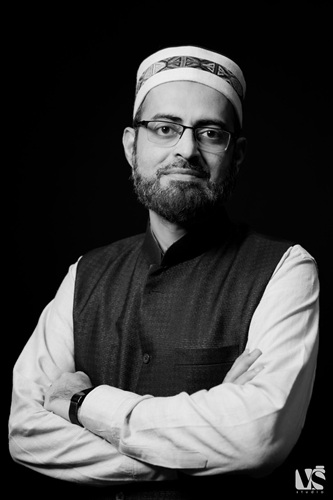
Before we begin, could you please share a brief overview of your professional background and qualifications?
I am a Chartered Accountant with expertise in Accounting, Law, and Finance, and I hold an MBA in Finance and HR from XLRI. I began my career as a partner at AVD Associates before joining IPE Global Pvt. Ltd., where I was promoted in 2010 and have since been serving as Chief Knowledge Officer (CKO).
Beyond my corporate role, I am the Founder Trustee of the Kolkata-based NGO, The Sirri Saqti Foundation (TSSF), and Director of Pearlwood Ventures Pvt. Ltd. I also hold a diploma in Arabic Language and Literature.
Your academic credentials are quite strong and it seems you have a successful career as a Charted Accountant, then how did you gravitate towards social service?
While my professional journey as a Chartered Accountant brought me financial stability, respect, and recognition in society, I always felt something was missing. Deep down, I knew that personal success alone does not define a meaningful life. I kept searching for a deeper purpose and soon realized that a life lived for others is the true life. This understanding inclined me toward social work quite early in my career. However, despite my earnest desire, I didn’t initially know how to begin in a specific manner.
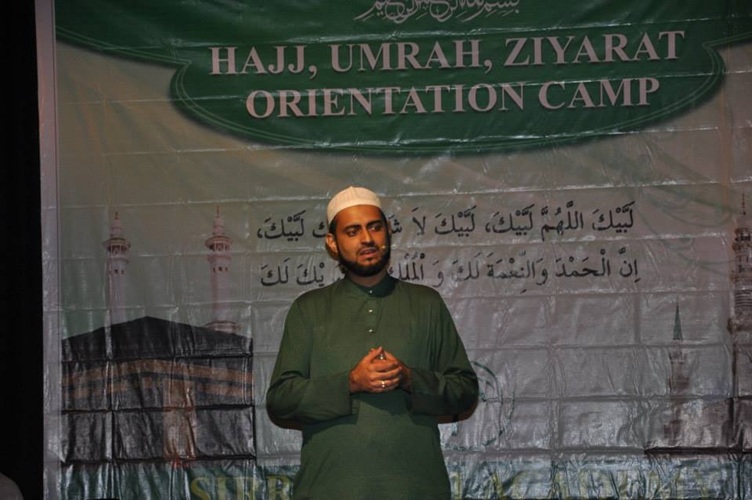
So, was there a particular moment when you recognized your true calling, which prompted you to start your own initiative in this regard?
This happened in 2009. My firm used to work with the government of India’s developmental schemes. So, I was sent to Odisha to oversee the implementation of the National Rural Employment Guarantee Scheme (NREGS) on the ground. I was working in a remote, poverty-stricken village when an old man approached and enquired me what we were doing.
Accordingly, I explained to him about the government scheme of providing employment to the rural people to improve their economic condition. To this, he replied with something for which I didn’t have an answer.
He said, “Look, I am an old man. I can’t do physical work. So, what is the use of this scheme (NREGS) to an old person like me?” It was a fact, I realized. Nevertheless, I asked him how he thought the government should help him. He replied that all he wanted was for the government to provide him with two goats, which he could rear and, in the future, earn profit from them.
I didn’t know how to answer him, so I turned to one of the government officers there to enquire if there was any scheme that could address the old man’s need. The officer replied that there was, in fact, a government scheme called the National Rural Livelihood Mission (NRLM), but it had just been passed and would take a long time before being implemented at the ground level. On hearing this, the old man responded, “Don’t you think I will be dead by that time?” There were signs of frustration and derision in his voice. His hopeless words struck me deeply, making me think that I should personally help this man. This moment marked the first step towards my social initiative.
How did this incident impact your thoughts about the needs of the poor?
The impact of this incident shaped my understanding of the immediate needs of poor people, which are often overlooked in the light of grand schemes and bigger goals. Often, the needs of the people are quite ordinary, and if addressed at the right time, they can be of immense help to them. Many people fall through the cracks of much-hyped policies and schemes. The need is to reach out to them with timely help, however small, to alleviate their problems.
How did your organization begin its journey, and what was the first social initiative it undertook?
At first, we started with breakfast distribution in 2009. People around me had hesitation doing it in the beginning, but I convinced them. Although we were only a few, we began with full sincerity and dedication. We carried it out through our own contributions, and after a while, small funds from here and there trickled in, keeping us afloat and helping us continue our mission.
People were initially dismissive of our effort, saying it was a waste of money since it wouldn’t make any real difference for the beneficiaries. Perhaps they were right in a narrow sense, but I knew that despite numerous schemes and policies at both government and private levels aimed at improving the economic conditions of the poor, the most basic problem such as hunger remained unaddressed. To many of us, hunger may seem unimaginable in modern times, yet it continues to persist across the country. The reality is quite stark: the Global Hunger Index 2024 ranks India 105 out of 125 countries, classifying its hunger level as “serious.” This shows that hunger is not a distant issue—it is here, and it demands urgent attention.
Let me explain it with an example. Once, a Chennai-based chef friend of mine went to visit his village ahead of his planned departure to the UAE for a lucrative job offer. But something happened that made him abort his plan. He saw an extremely poor old man by the roadside, so consumed by hunger pangs that he ate his own excreta. When my friend told me this, it shook me to the core. He felt ashamed that while he was serving delicious food in five-star hotels, people in his own village were sleeping hungry—and worse, someone like that old man was forced to eat his own excreta. My friend decided to cancel his plan of working as a chef in hotels and instead started preparing and distributing food to the needy in his village and adjoining areas. My motivation to start my own breakfast distribution program stemmed directly from this unfortunate incident that my friend narrated to me.
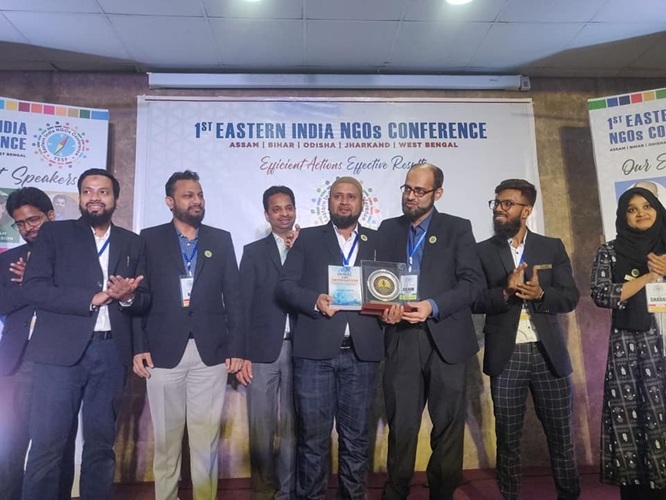
Besides the inspiration, what philosophy drove your breakfast distribution program?
We never judged people based on their needs—our program was open to all, irrespective of their religious affiliation. We went wherever we could find the poor and destitute and offered them food. Some accepted it with gratitude, while a few, out of self-respect, chose to refuse—and we respected that too. What mattered to us was the satisfaction of knowing that we were able to fill the stomachs of those who were hungry, without getting caught up in debates about whether such help made a big difference or not. For us, even that small act was a blessing, a way to express our gratitude to the Almighty for giving us the ability and opportunity to help others. It was the barkat of our maiden program that enabled us to expand our social work in other directions as well.
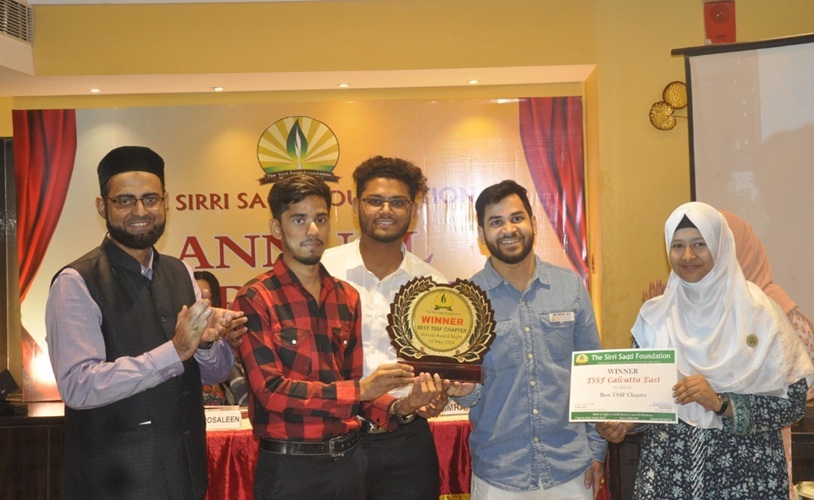
Following the breakfast distribution initiative, what was the next program of your organization?
At the Sirri Saqti Foundation, we believe that true development is incomplete without spiritual growth. With this aim, our next step was to organize a Hajj training camp, so that those embarking on this sacred journey with their hard-earned money could experience complete islah through it. What began in 2010 has, by Allah’s grace, continued every year, with people now eagerly awaiting the opportunity. Yet, the beginning was far from encouraging. In our very first camp, only 7 or 8 people turned up, even though we had set out 200 chairs in expectation. I was disheartened, but a mentor I had invited from Hyderabad reminded me of a powerful truth. He said, “Throughout history, thousands of prophets have come—many were never listened to, let alone followed—but that never lessened the value of their efforts or their noble status. Our duty is only to work with sincerity, leaving the results to Allah Subhanahu wa Ta‘ala.”
His words struck me deeply and gave me the strength to persevere. Over time, the program grew steadily, and today it draws hundreds of pilgrims who wish to understand the true essence of Hajj—not just its rituals, but its spirit of piety, humility, and contentment that can transform one’s life long after the pilgrimage ends.
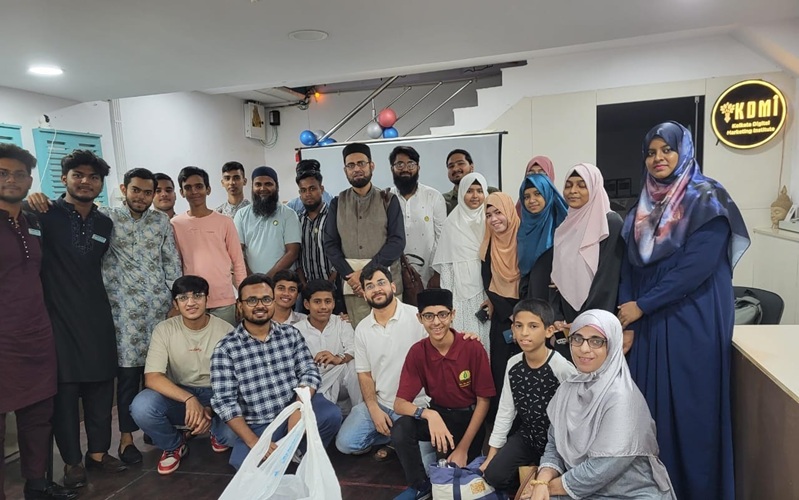
To many, the name of your NGO may not sound familiar. How did you decide on naming it The Sirri Saqti Foundation (TSSF)?
Sirri Saqti was an early Sufi saint and mystic of 9th-century Baghdad. He was the maternal uncle and spiritual mentor of Junayd Baghdadi (Rahmatullah alaih). While Junayd is widely celebrated as one of the great exponents of Sufi thought, Sirri Saqti has remained a relatively lesser-known figure.
Frankly, I too did not know much about him. Perhaps I had come across his name in passing, or maybe not at all—at least, my mind had never consciously retained it. Then, one night, quite unexpectedly, I saw a dream about him. I could recall only fragments of it, yet when I woke up the next morning, the pious name Sirri Saqti was fresh on my lips and vivid in my mind. Curious, I searched the internet to learn more, and was astonished by what I discovered about his life and legacy.
He was among the earliest pioneers of Sufism, illuminating the spiritual path of love, asceticism (zuhd), and trust in Allah (tawakkul). He strongly emphasized giving alms to the poor and taught that sincerity (ikhlas) must be reflected not only in worship but also in service to humanity. His life was a true embodiment of love, compassion, and humility. One can know more about him visiting our website, saqti.org. I would like to add that initially the name of our organization used to be Saqti Foundation. We adopted the full name, The Sirri Saqti Foundation (TSSF) in 2012.
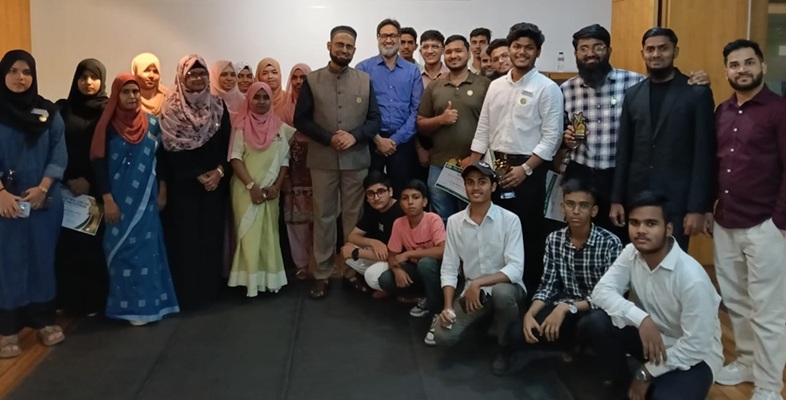
No doubt, the name of your organization signifies its religio-spiritual dimension. What other programs have you undertaken in this direction?
While the name reflects the religio-spiritual ethos of our organization, I would like to clarify that we function like any other NGO, with programs in education, health, livelihood, and more. At the same time, we place special focus on character building and nurturing a morally guided life in line with Islamic values. Importantly, all of our programs are open to everyone, regardless of religious identity, as our mission is to serve humanity as a whole. Only the religious nature programs are specifically meant for Muslims.
The need for these specific nature programs emerged from our observation that the youth in their quest for Duniya are seemingly drifting away from Deen, which often leaves them feeling unhappy and unfulfilled despite material gains.
Alongside our Hajj training, we also started a program on zakat to address the need for simple and accessible calculation methods, as zakat calculation often remains a complicated and confusing exercise. Different firqas follow different approaches when it comes to determining the zakat amount. We studied the matter comprehensively with an open mind, consulted various ulema, and then, through the use of technology, made it clear and easy for people to understand. Those who attend our program often admit that, for years, they had been calculating zakat incorrectly, but now they are able to pay the correct amount, which is usually more than before.
Then we started a program on the Seerat of Prophet Muhammad (Sallallahu Alaihi Wasallam) to familiarize people, especially the youth, with his character, actions, and teachings. We also organized a workshop called The Way of the Prophet, in which we taught about the noble practices of the Prophet (Sunnah), emphasizing not only their zahiri (apparent) aspects but also their batini (inner) meanings.
Another salient initiative was the launch of Heart in Bloom, a systematic program in collaboration with Islamic Voice aimed at cleansing the heart, based on the belief that all teachings, religious or modern, are meaningless unless our hearts are tender and compassionate. In the modern world, despite all kinds of progress, the lack of peace of mind has left us increasingly bitter, with hearts hardened and deprived of humility and empathy for others.
For the last 10 years, this program has been conducted regularly, both online and offline. While earlier such programs in the city were sporadic in nature, we have institutionalized it since the beginning to ensure that it is organized without fail.
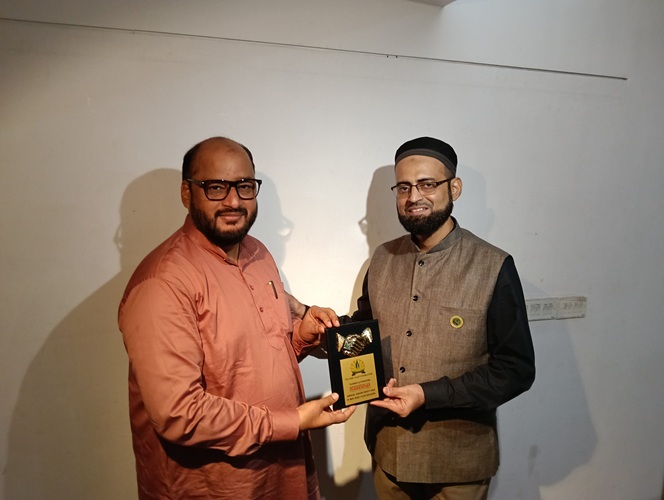
As you mentioned, apart from these spiritually oriented programs, TSSF is also engaged in areas like health and education. Could you throw some light on these initiatives?
Our health initiative began in 2013 with the launch of RAAHAT Clinic, aimed at providing affordable healthcare to the poor through a nominal consultation fee and free or subsidized medicines. What started with a fee of just Rs. 10—now Rs. 70—has grown into a lifeline for the community, serving nearly 1.5 lakh patients so far.
To extend support beyond the clinic, we established a Medical Bank that lends essential medical equipment to patients in need. We also introduced a Blood Card service to make blood available during emergencies, supported by our regular blood donation camps. Going a step further, we created a Medical Support system that provides direct financial assistance for critical treatments, ensuring that no deserving patient is left without care simply because of money.
In conjunction with our medical initiatives, we are deeply committed to supporting the education of deserving students. This includes financial assistance for school fees, admission costs, and essential books. Beyond scholarships, we extend mentorship through career guidance and counseling. To prepare them for future pursuits, we also coach students in public speaking and personality development, helping them build the confidence and skills needed for long-term success.
In response to your current question, I would also like to add that as part of our social development program, we actively support livelihood initiatives. Through our Micro Business Support Program, we provide small, zero-interest investments to encourage entrepreneurship within the community. Similarly, under Zariya, we equip individuals, especially women, with skills and tools to achieve financial independence. For example, we provide training in tailoring and other essential skills, and if someone cannot afford a sewing machine, we help them purchase one.
Additionally, we extend pensions to families in dire need through our General Pension Support, and to those who are financially struggling but unable to receive zakat, we provide assistance under our Sadat Support Scheme. These efforts aim not only to provide immediate relief but also to restore dignity and ensure long-term stability for vulnerable households.
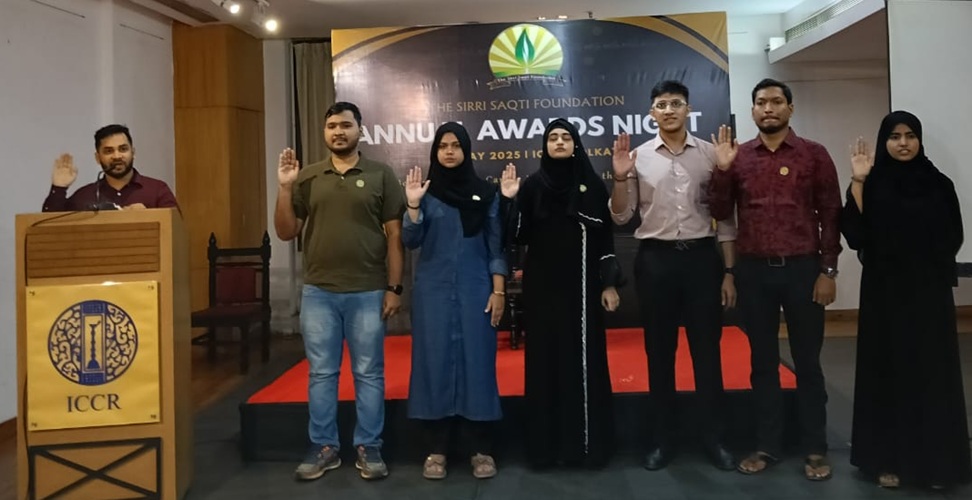
How would you describe the current reach and scale of TSSF’s work?
Today, TSSF has grown into a vibrant community with over 300 committed members and more than 50 generous donors who support our mission. While our direct beneficiaries exceed 300 individuals, the true impact of our work is much wider. We have touched the lives of lakhs of people through our health services, food distribution drives, livelihood programs, and training workshops. Wecurrently have three active chapters in Kolkata: TSSF Kolkata Cares (TKC), TSSF Kolkata South (TKS), and TSSF Kolkata East (TKE). All of them are doing commendable work, and we are working to expand our presence in other regions, with new chapters likely to be created soon.
What is the idea behind the Chapter Model?
Around 2018, we realized that many of our members had to commute long distances across the city to attend our programs and participate in activities. To address this, we decided to create leaders from within our members who could take responsibility for conducting TSSF’s activities in their own parts of the city. This need led to the introduction of the Chapter Model, which enabled them to focus on their immediate neighbourhoods, thereby creating greater impact and more meaningful outcomes.
To open a chapter, at least 20 members must come together, each contributing a nominal fee of Rs. 8,000 to TSSF. From among themselves, they elect a serving board of 5 members who will lead and manage the chapter. TSSF then registers the chapter, issues an affiliation certificate, and manages the funds contributed by the members, which remain accessible to the chapter for developmental work as needed. It works somewhat like a franchise model, providing ample flexibility for each chapter to implement its own ideas while staying aligned with TSSF’s core programs and activities.
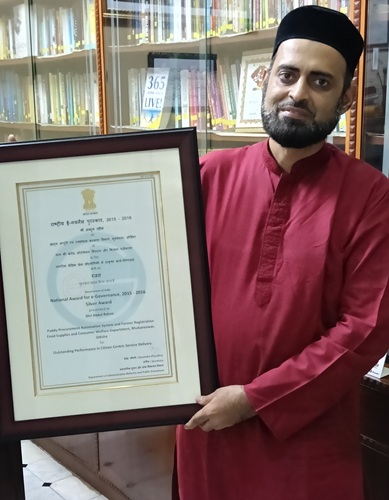
How has the Chapter Model impacted your organization and its members?
The Chapter Model has helped us nurture social entrepreneurs and leaders at the local level who are driving meaningful change by engaging members and communities through Chapters. The Model has not only expanded our reach but also freed us to focus on designing new policies and programs, while the chapters carry out a wide range of activities on the ground. At the same time, this approach has helped strengthen TSSF’s brand value, something every organization needs for long-term sustainability. After all, we will not be here forever, but if TSSF grows into a strong brand with deep roots, it will continue to inspire action and remain a force for positive change long after us.
The model has also done a world of good to our members by giving them hands-on opportunities to learn and grow. With real responsibilities on their shoulders, they gain experience in managing social projects, handling legal aspects like accounts and returns, exploring innovative ways of fundraising, and executing a variety of activities.
TSSF is dedicated to building the abilities of its members by offering targeted training, workshops, and resources that prepare them for leadership in social development. Through SPEAK, members gain confidence in public speaking and learn the art of engaging storytelling—essential for creating lasting impact. At the same time, our Discover Yourself program, guided by renowned life coach and spiritual mentor Sadath Khan, helps them practice self-introspection, nurture inner peace, and align personal growth with spiritual values. By combining professional skills with personal transformation, we ensure that our members are equipped to serve society with both competence and compassion.
What are your future plans for your NGO?
To be honest, in an ideal world where every individual took responsibility for caring for those less fortunate, the very need for NGOs would disappear. But I know that is a utopian thought. The reality is that NGOs are essential—and so we continue to run ours. I don’t have any unrealistic or grandiose vision, but we take pride in the impact our efforts, however small, have made on people and society.
At present, we have no immediate plans to expand our work to other parts of the country. Going forward, we aim to strengthen and grow through the Chapter Model, deepening our presence in Kolkata and gradually beyond. Only after consolidating our foundation here, will we consider expanding into other regions.
That said, if individuals or institutions are inspired to adopt our model, we will gladly encourage it. With its minimal administrative costs and well-structured programs, the model we have developed is practical, scalable, and worthy of replication. Ultimately, our hope is that the spirit behind TSSF lives on through our members, through the communities we serve, and through anyone who chooses compassion over indifference.

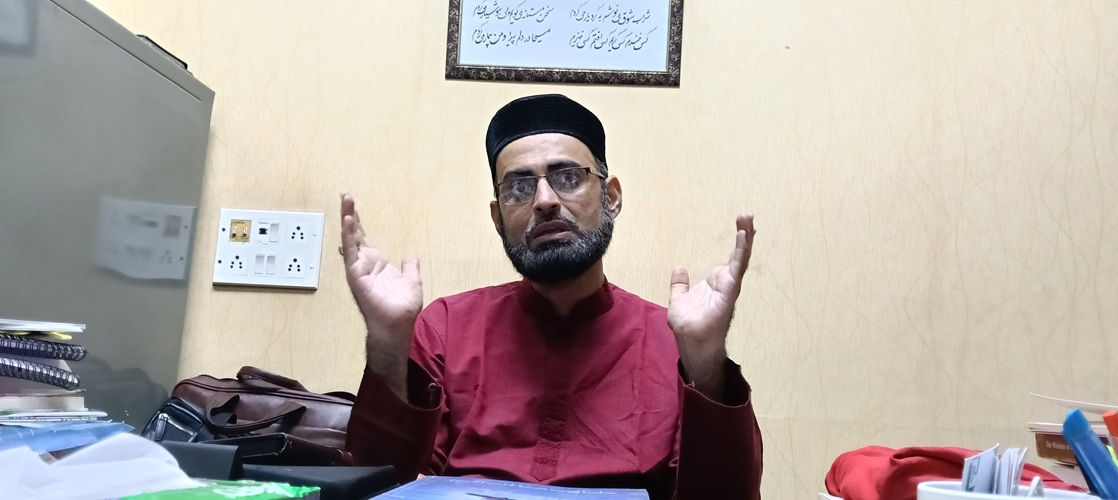
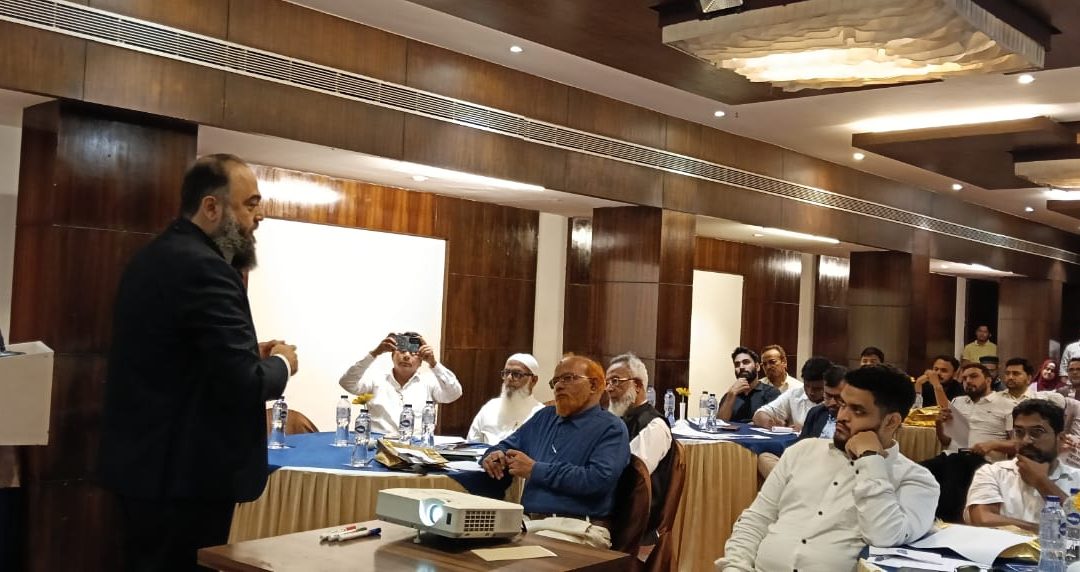
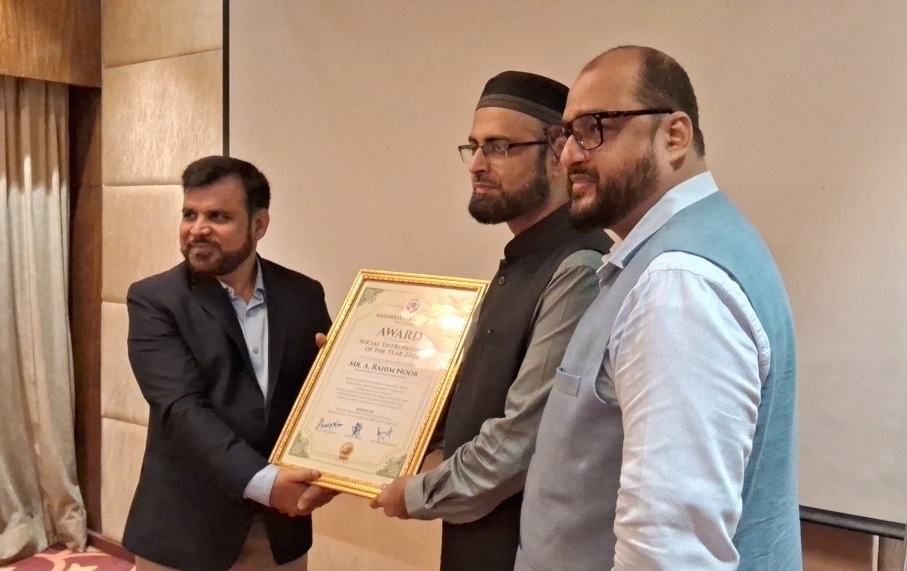
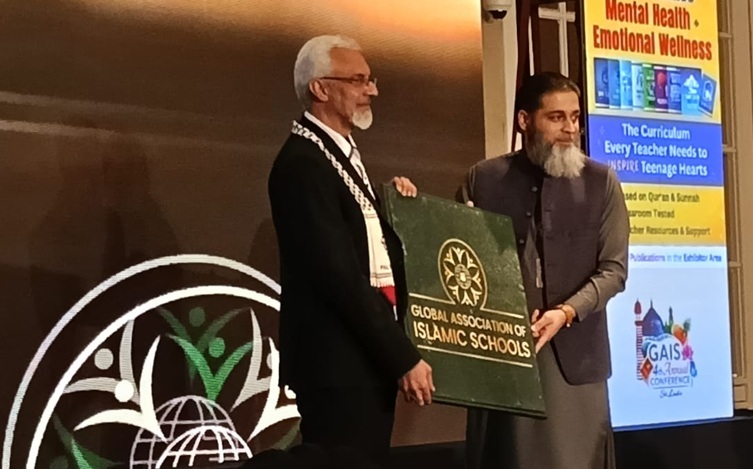
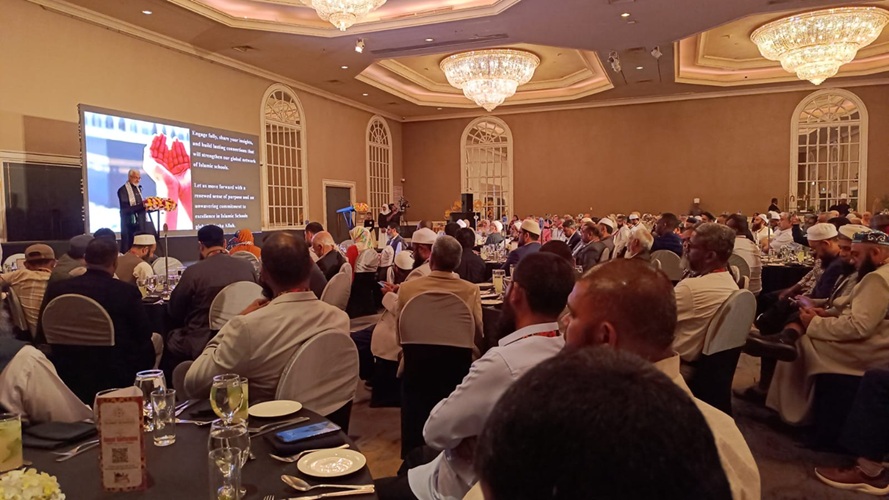
0 Comments